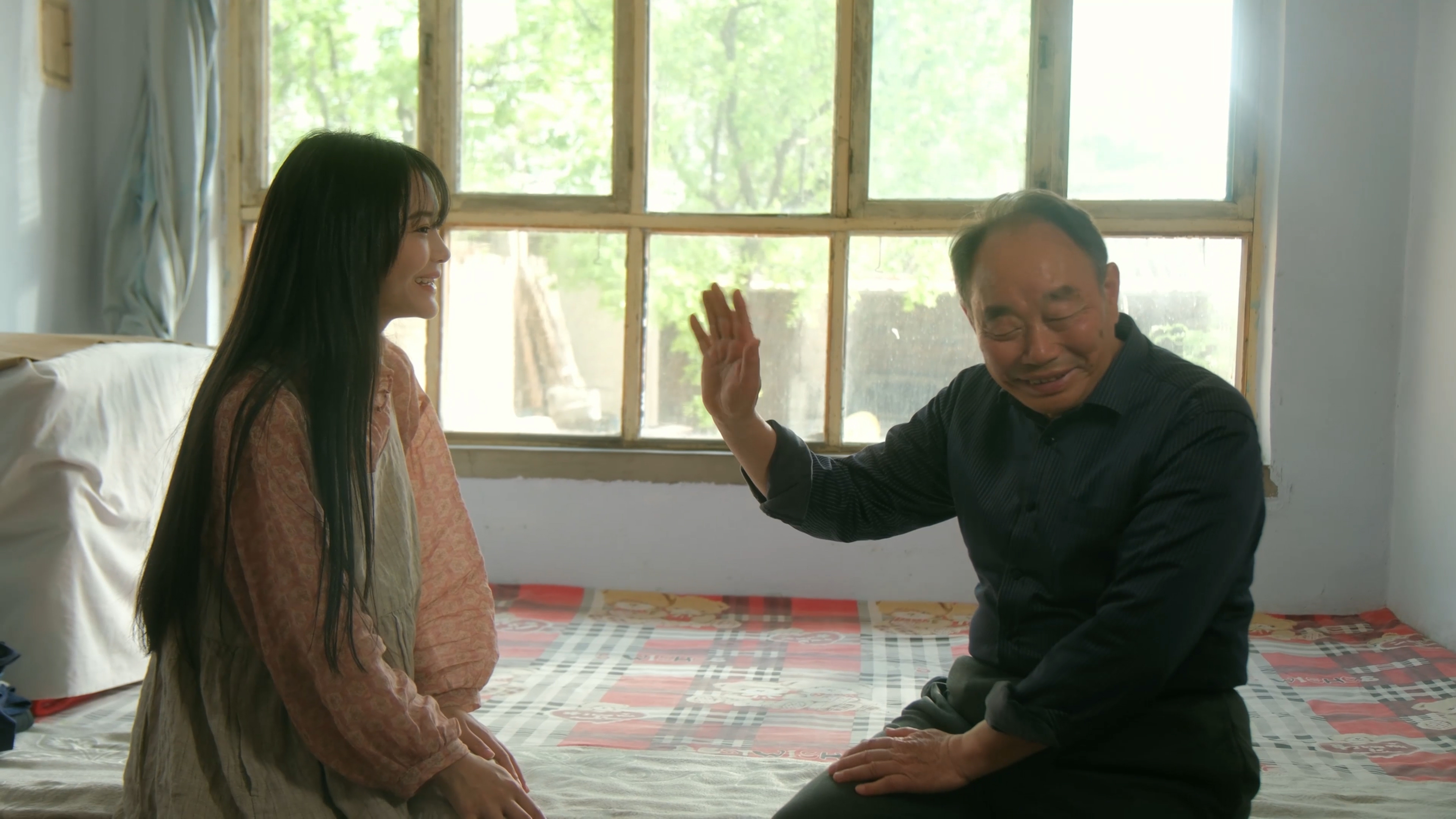A short video of datiehua
With a hard yet skilled swing of the hammer, molten iron at over 1,600 degrees Celsius splashes straight into the air, ricocheting off the leafy tree branches draped over scaffolds above before bursting into bright sprays and falling to the ground in a blazing drizzle.
This display is called datiehua, which literally translates to "striking iron flowers." The descriptive name accurately captures the spectacle, where showers of sparks fall like flowers from trees.
In ancient times, Taoists would invite blacksmiths to perform datiehua during major festivities in worship of god. The ritual gradually evolved into traditions across China with distinct regional characteristics, including one in Queshan county, Henan Province.
The name also has another layer of auspicious meaning. The character hua from datiehua, or 花 in Chinese, rhymes with 发, pronounced fa, which can mean "to become rich and prosperous."
The centuries-old custom, intricately woven with Taoist culture and the art of smelting, is recognized as intangible cultural heritage by China.
Recently, the tradition saw the spotlight in a video posted by Jiang Xunqian, a 26-year-oldcontent creatorwho is trying her hand at the ancient art.

Jiang Xunqian, a Gen Z content creator with 12 million followers across Chinese social media platforms (Photo provided to People's Daily)
Warming Up
According to Jiang, Yang Jianjun, a representative inheritor of Queshan datiehua, was surprised that she and her team actually showed up at his doorstep after contacting him online.
Yang was hesitant to take Jiang on as a student, as the art is dangerous. If not struck properly, the molten metal can splash randomly and burn the skin. Few women have ever performed datiehua. None have in Queshan county.

Yang Jianjun (right) refuses Jiang Xunqian’s request to teach her the art of datiehua. (Photo provided to People's Daily)
"Master Yang spent over three hours elaborating on all the risks, citing examples of his accidentally injured apprentices," Jiang said. However, she was undeterred, which impressed Yang. He decided to give her a chance.
Creating 'iron flowers' without getting hurt takes a lot of practice. Apprentices usually train by striking stones, sand and water to build up their strength and get used to the sensation of particles drizzling down on the skin.

Jiang Xunqian (right) trains with water as datiehua master Yang Jianjun looks on. (Photo provided to People's Daily)
Her first few strikes were far from ideal. "Feeling the sand falling on my back really gave me a chill," Jiang said. "I didn't dare imagine what would happen if it was 1,600 C molten iron instead of some warm sand," she added.
Let the fireworks begin
The final trial in Jiang's month-long training eventually arrived. She instructed her team to keep filming, regardless of what happens.
When night fell, Jiang and Yang's other apprentices put on a spectacular show. What started as a lump of glowing hot iron soon burst into showers of sparkling light.

Jiang Xunqian (left) performs datiehua, sending bursts of molten iron into the trellis above. (Photo provided to People's Daily)
Wrapped in fireproof material, the cameras captured the whole process. The only casualties were a few strands of Jiang's hair, singed clothes and some burns. "Minor burns were inevitable, but it was totally worthwhile, just like all the other things I have done, always," Jiang said.
In its more than 1,000 years of history, datiehua has had few female inheritors. Yang named Jiang a 7th generation inheritor, making her the first woman to hold the distinction for Queshan datiehua.
Thanks to their efforts, the team has helped to spark interest in datiehua on social media. On popular video platform Bilibili, her post has garnered over 14 million views and more than 1.7 million likes.
Jiang says she only aimed to bring the art to new audiences: "I just wanted to let everyone know that such a beautiful thing as datiehua exists."
"Some say that younger generations are losing interest in traditional culture, but that’s not the case," Jiang said. "Nearly all of my followers are people my age and I think it's more of a question whether we have a proper channel, such as the internet, to connect intangible cultural heritages with people," she added.


